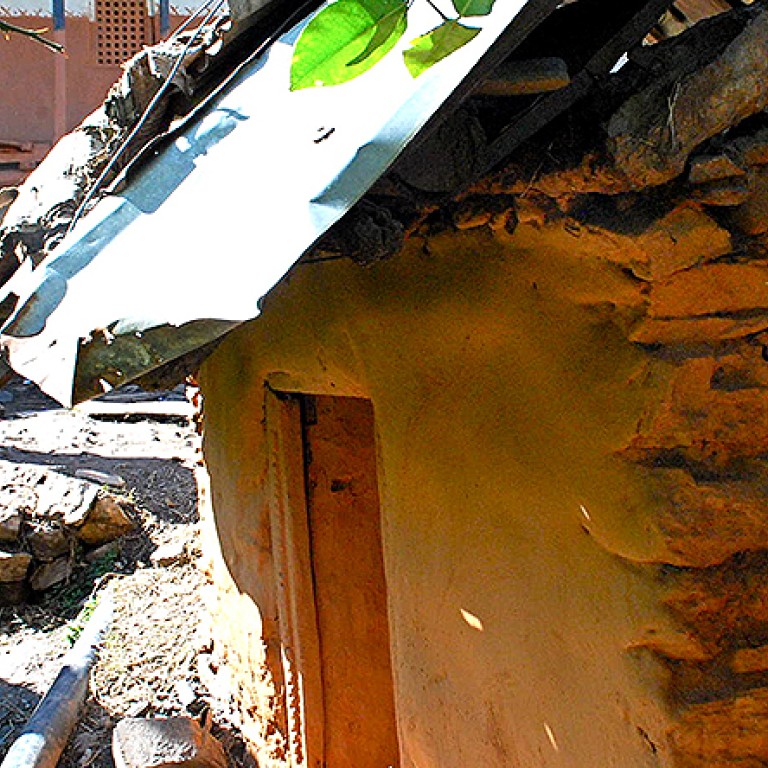
Nepali women still plagued by archaic practice of imprisonment during menstruation
As the world today marks International Women’s Day, the archaic practice of menstrual expulsion known as chaupadi, remains highly prevalent in far-western Nepal, writes Bibek Bhandari
After a bath, on the fifth day of her menstrual cycle, Sunita BK said she was “cleansed” and ready to return to her house.
For the past four days, BK, 19, had been forced to live in a makeshift shed known as a “goth” that serves as a temporary confinement for women during menstruation. The 1.2 metre by 2 metre tin-roofed hut is off limits to the main household.
Our elders think the gods will be angry. The family will have to bear the consequences if we stay in the house during menstruation. We can’t speak against them
“I feel free today,” BK said scurrying around her nine-room house in Mangalsen, Accham.
As the world today marks International Women’s Day, the archaic practice of menstrual expulsion, known as chaupadi, remains highly prevalent in far-western districts of Nepal, including Accham.
The government’s Department of Women’s Development estimates women in around 80 per cent of Accham’s households undergo menstruation confined to goths. An upcoming report by the Save the Children NGO says the rate is even higher, at 89 per cent.
Dr Aruna Uprety, a researcher of chaupadi, said the feudal tradition stems from Hindu religious beliefs that consider menstruating women as “impure” and “untouchable.”
Although many women like BK regard the tradition as based on superstition, they are forced to comply.
“Our elders think the gods will be angry,” BK said. “The family will have to bear the consequences if we stay in the house during menstruation. We can’t speak against them.”
And so, most of Accham’s women suffer in silence in the goths.
BK said women undergoing menstruation are not allowed to use the same tap or even share the same food as the rest of the family; dairy products and meat are restricted. Many women share the same shed, cramped and without ventilation. But when they are alone, they fear predatory animals - and men. Safety is a constant concern.
Uprety said she regarded chaupadi as abuse. It was officially outlawed by Nepal’s Supreme Court in 2005.
“I consider this a form of violence against women,” she said. “It’s not only a women’s rights issue but a health and human rights issue too.”
Being cast out of their homes with inadequate nutrition and sanitation had serious implications on women’s reproductive health, Uprety said.
An Amnesty International report published last month said Nepal suffered “widespread and systemic gender discrimination” putting women at risk of reproductive health problems.
Some villages in Accham are however gradually adjusting to new ways, if not getting rid of chaupadi entirely, said Gopi Singh Nepali, project manager at the Department of Women’s Development. Six of the district’s 75 villages have been declared goth-free; menstruating women are now allowed back indoors, albeit separated from the rest of the household.
“Our main objective is to raise the women’s status in society and to prevent chaupadi-related deaths,” Nepali said.
Last year, in Accham’s Ridikot village, a teenager reportedly died of suffocation in a goth. The incident triggered a change in social consciousness, and today Ridikot is goth-free.
“Her death was sad, and it prompted women, and also men, in our village to act,” said Dhan Kala Kumal, a teacher in Ridikot, an hour away from Mangalsen . “If she were at home, maybe she might not have died.”
Today, women in Ridikot openly discuss menstruation-related issues and encourage girls to attend school during their period.
“Before, I wasn’t even allowed to come teach [while menstruating],” said Kumal, 29, standing outside her class.
In recent years, young men like Kamal Rawal have also joined the discourse. The 22-year-old journalist said he talks about chaupadi in his radio programmes. At home, he has been able to convince his parents to change their ways.
“I told them I wouldn’t come home unless they allowed my wife and sister stay indoors,” he said.
Aiming to raise awareness and change social attitudes, the district office has also formed chaupadi “inspection teams” and “teenage groups” in 19 villages.
For women like BK, these reforms seem promising, but change is yet to come – the notions of gender equality sound like a fairytale.
“I hope the situation will change soon,” BK said.

